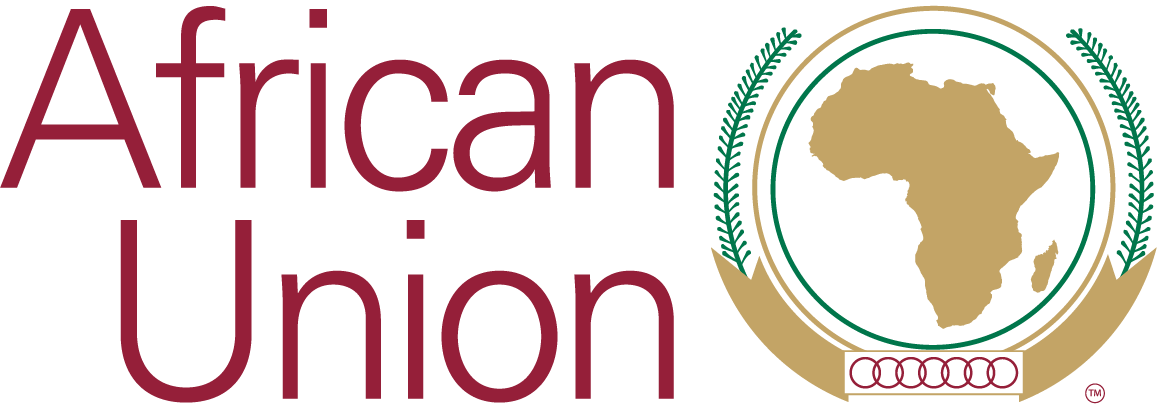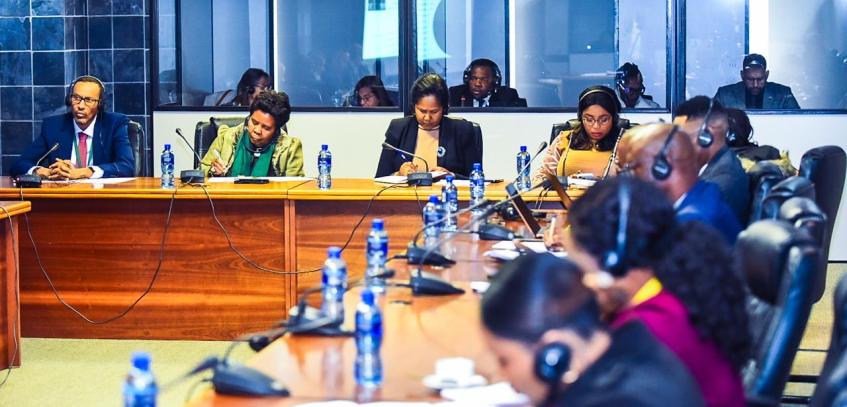The Permanent Committee on Cooperation, International Relations, and Conflict Resolution of the Pan-African Parliament held its first session on Tuesday morning, following its last meeting in May 2023. The committee's focus remains firmly on the crucial issues of peace and security across the continent, aligning with the African Union's (AU) Agenda of Silencing the Guns. This goal is recognised as essential for any form of development in Africa, particularly in creating an environment conducive to thriving education systems, as highlighted by the AU's Theme of the Year: "Educate an African Fit for the 21st Century: Building Resilient Education Systems for Increased Access to Inclusive, Lifelong, Quality, and Relevant Learning in Africa."
Representing the African Union Commissioner for Political Affairs, Peace, and Security, Ambassador Bankole Adeoye, Ambassador William Azumah Awinador-Kanyirige briefed the parliamentarians on the current status of peace and security in Africa. The African Union Commission for Political Affairs, Peace and Security (AUC PAPS) promotes good governance, peace, security, and stability in Africa and advances African positions globally.
Ambassador Awinador-Kanyirige's presentation covered several critical areas, emphasizing the role of PAP parliamentarians in advancing the continental agenda for lasting peace and security. Key priorities for AUC PAPS in 2024 include South Sudan, Sudan, Ethiopia, Somalia, and Eastern DRC, with the Sahel region identified as the most dangerous hotspot. Efforts to develop a comprehensive Sahel strategy are ongoing. Gains in Somalia were noted, though additional logistics and resources are required to achieve lasting stability. The AUC PAPS is actively involved in the Luanda and Nairobi processes to support peace in the Great Lakes Region, while South Sudan's protracted transition sees new election dates set for December.
Ambassador Awinador-Kanyirige highlighted the need for increased institutional capacity and the implementation of chain management processes to foster a responsive and reform-oriented culture within the AU and the RECs. He called for collaboration between the PAP and the Department of Political Affairs to achieve peace for all African citizens, emphasizing a knowledge-based approach to peacebuilding and conflict resolution, which builds knowledge networks for early detection and early response. He also stressed the importance of operationalizing the AU Peace Fund, which has already shown success in Ethiopia where USD 1 million went towards efforts to silence the guns in Northern Ethiopia.
The Ambassador praised African solutions for African problems, citing successful peace-brokering efforts by former heads of state and diplomats such as former Nigerian President Olusegun Obasanjo and First Lady Graça Machel. He urged AU member states to strengthen efforts through a nexus of peace, good governance, and regular elections, with elections viewed as a means to an end, not an end in themselves. The role of Pan-African Parliament MPs in leveraging national parliaments and relationships with external stakeholders was underscored, with a particular focus on mobilizing resources for the AU Peace Fund from private sectors, regional economic blocs, and African citizens both domestically and abroad.
During discussions, Parliamentarians addressed several issues, including the slow progress of the AU's counter-terrorism efforts in Somalia and the need for a new strategy. Concerns were raised about the influence of imperialism and the hypocrisy of Western nations in their involvement in African conflicts while remaining silent on issues like Gaza. MPs recommended reducing reliance on external forces to maintain sovereignty and suggested utilizing African natural resources for funding initiatives.
Other significant points included the importance of understanding the root causes of conflicts for effective mediation, follow-ups on the Troika for Western Sahara, and the critical role of youth in peacebuilding. MPs advocated for education and skills training to harness the potential of Africa's youth and prevent their exploitation by foreign entities, terrorist groups, and violent extremists.
The Committee also recognised the contributions of member states like Morocco, Algeria, South Africa, and Niger in supporting logistics and election observer missions. Ambassador Awinador-Kanyirige encouraged members of the Committee to support continental integration processes, emphasizing that counter-terrorism requires coordinated efforts, resources, and overall economic development. The Ambassador reiterated the need for African unity, well-organized institutions, and resource commitment to address the continent's peace and security.








